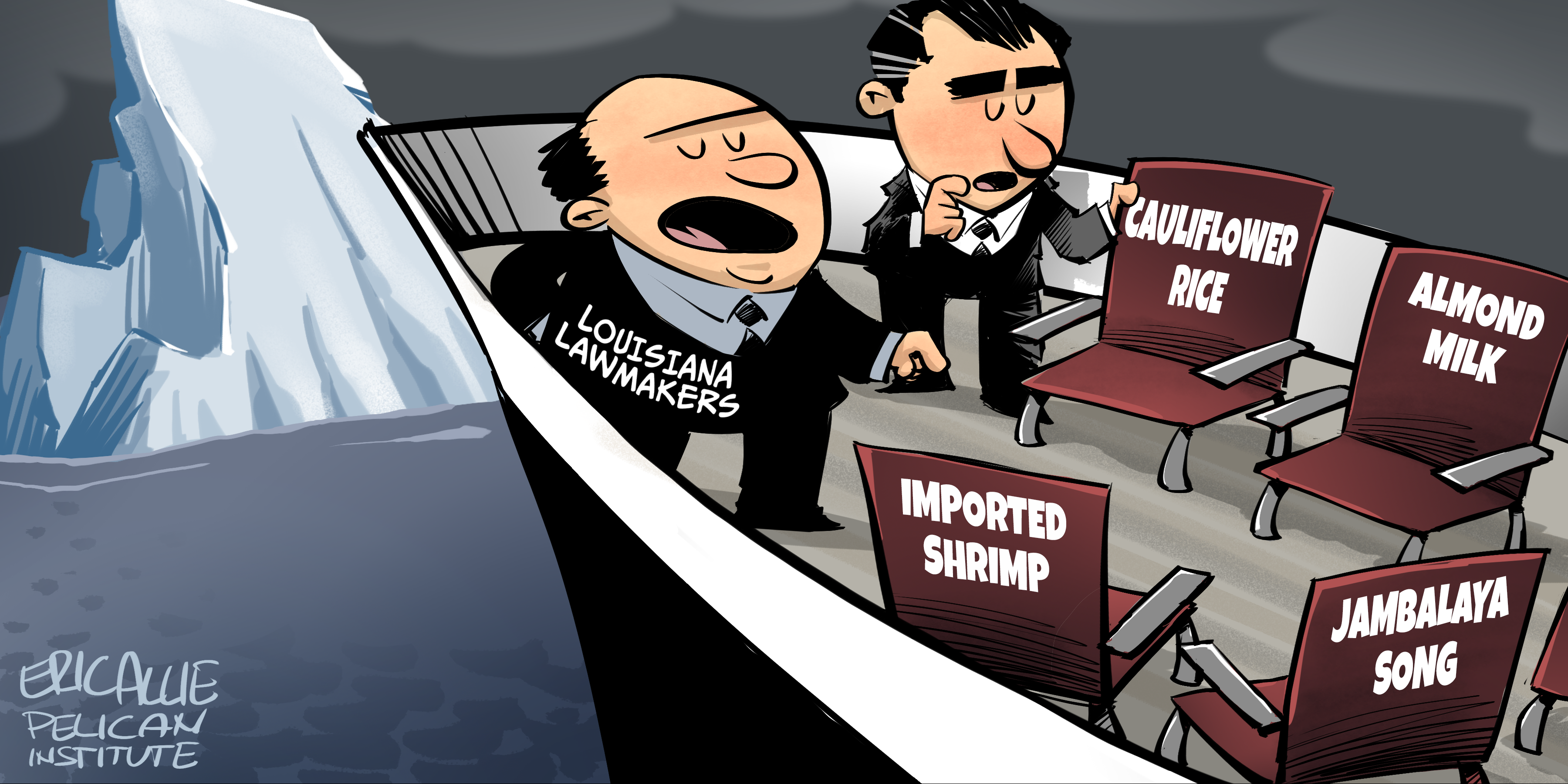
While Louisiana is Sinking, Many Are Concerned with Re-arranging the Deck Chairs
It’s no secret to the people of Louisiana that things aren’t going well. The state has a shrinking labor force, an antiquated budget system, a struggling education system and a backlog of infrastructure projects that are in need of addressing. Given these issues, it’s no surprise that there is a sizable population that is leaving the state en masse.
So, what are some of the proposals the Louisiana legislature has decided to take up in a shortened legislative session to address these pressing issues?
Some pressing issues currently under consideration are whether or not Louisiana should ban use of “cauliflower rice” and “almond milk” to describe food and beverage products.
Another proposal would require all restaurants to provide notice to their patrons if shrimp or crawfish they use is “imported.”
And most importantly, lawmakers are toiling over whether Hank Williams, Sr.’s “Jambalaya (On The Bayou)” should be Louisiana’s state song.
With these and other similarly heavy-hitting items on the legislative docket, Louisiana’s leaders are poised to reverse the trend of a state that is falling further and further behind its neighbors, right? After all, who could leave a state with such a great state song?
All sarcasm aside, the time and attention paid to these proposals is a great illustration of precisely why Louisiana is lagging behind while the rest of the nation is booming. Louisiana has real problems that have, for too long, gone unaddressed while politicians continue to focus on boutique issues.
As lawmakers quibble over inconsequential issues, real problems that affect everyone in Louisiana, such as the state’s overly complicated tax system and poorly structured legal environment, remain unaddressed.
Not all legislators are fiddling while Louisiana is sinking, however. Many have taken notice of the Pelican Institute’s Jobs and Opportunity Agenda and are working hard to right the ship.
There was an attempt to set Louisiana on the path toward fiscal responsibility with legislation that would have restricted spending of the state’s general fund from recurring money to 98 percent of the original forecast. Unfortunately, the broken status quo won the day.
There have also been a variety of tax bills that would have simplified Louisiana’s code while lowering rates on families and businesses.
Other legislators tried to address Louisiana’s legal climate (known nationally as “a judicial hellhole”), which is the most litigious in the nation and is costing Louisiana’s hard-working families approximately $4,000 per year.
Unfortunately, most of these crucial legislative solutions were either killed by special interests in the legislature or are unlikely to be signed by the governor should they reach his desk. Meanwhile, the law informing consumers of the dreaded “foreign” seafood is looking like it might soon become law.
If the Louisiana legislature wants to flip the script on a state that is at the bottom of too many lists, is going to need to enact bold changes, such as the recent tax reforms passed in North Carolina. You can’t change Louisiana’s tune by simply replacing the state song.



